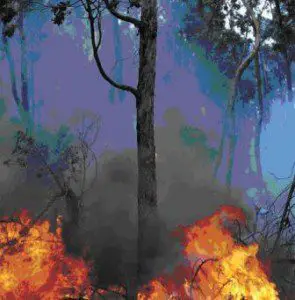Following the earthquake and tsunami in Japan and the Indian Gulch wildfire in our canyon, where officials warned those with animals (especially large ones) to evacuate sooner, I received an invitation to attend volunteer training for small animal disaster sheltering … if I ever wanted to help in a makeshift animal shelter in the event of an emergency.
Small Animal Disaster Sheltering Seminar
The training, offered by Gilpin County (not my county, but the one just north of us, up the canyon), is funded by a grant from the American Humane Association. They plan to call their newly trained volunteers GCART (Gilpin County Animal Rescue Team).
 This two-day course, scheduled for April 16-17, 2011, is the third and final requirement for volunteers who want to help staff animal evacuation centers in the event of a local emergency — like a wildfire or flood or something.
This two-day course, scheduled for April 16-17, 2011, is the third and final requirement for volunteers who want to help staff animal evacuation centers in the event of a local emergency — like a wildfire or flood or something.
The afternoon of the second day, it looks like they’ll be doing mock animal intakes at the county fairgrounds.
Two Emergency Management Classes (Online)
FEMA (Federal Emergency Management Agency), it seems, offers the other two courses required to become certified in small animal disaster sheltering for free online:
FEMA IS100: Introduction to Incident Command System
FEMA IS700: National Incident Management System, An Introduction
The FEMA website estimates another 3 hours of training, including taking the exam, for each of these additional classes.
So, for essentially, the equivalent of three days of time, any of us could become certified to help small animals in the event of a disaster.
Next Step: Small Animal Disaster Sheltering
Since I did not take off a single day the entire month of March and with April looking equally swamped, I haven’t yet decided if I can spare the time for this training in Gilpin County. I’d like to, especially because:
- It’s free.
- It’s close.
- It’s important.
But, I’ll have to see how things shake out.
However, I’m sharing this information because any of you could:
- Easily complete these two free, online FEMA emergency management courses
- Work with your local animal shelter or local veterinary association to bring this final training segment to your community
No one can predict the need for such efforts in the future, but when bad things happen, wouldn’t it be nice to know you are not only willing — but trained — to help?
Background Tangent: My last staff writing/editing/publishing job before I began freelancing full time in late 1999 was at the American Humane Association, where I oversaw their two magazines, their website, and oodles of other booklets, brochures, posters, etc.



All excellent information. Noah’s Wish, Inc., http://www.noahswish.org, also provides detailed, hands-on instruction in disaster-like simulations for people who want to take their interest in animals to the ‘next’ level. Many of us in disaster response on Long Island, NY, have become trained NW volunteers. NW had the highest pet-and-owner reunification rate of the nat’l organizations because they train so well. (BTW, the FEMA courses alone don’t suffice. Hands-on practice is key. But you must have passed the FEMA ICS-100 & -700 tests to activate.) My rex: see if there’s an animal disaster response team in your area. If not, then start one.
This is great information, Roxanne. And you’re right, very important. If Katrina and other disasters have taught us anything, it is that animals should not be forgotten or left behind in the event of a disaster.